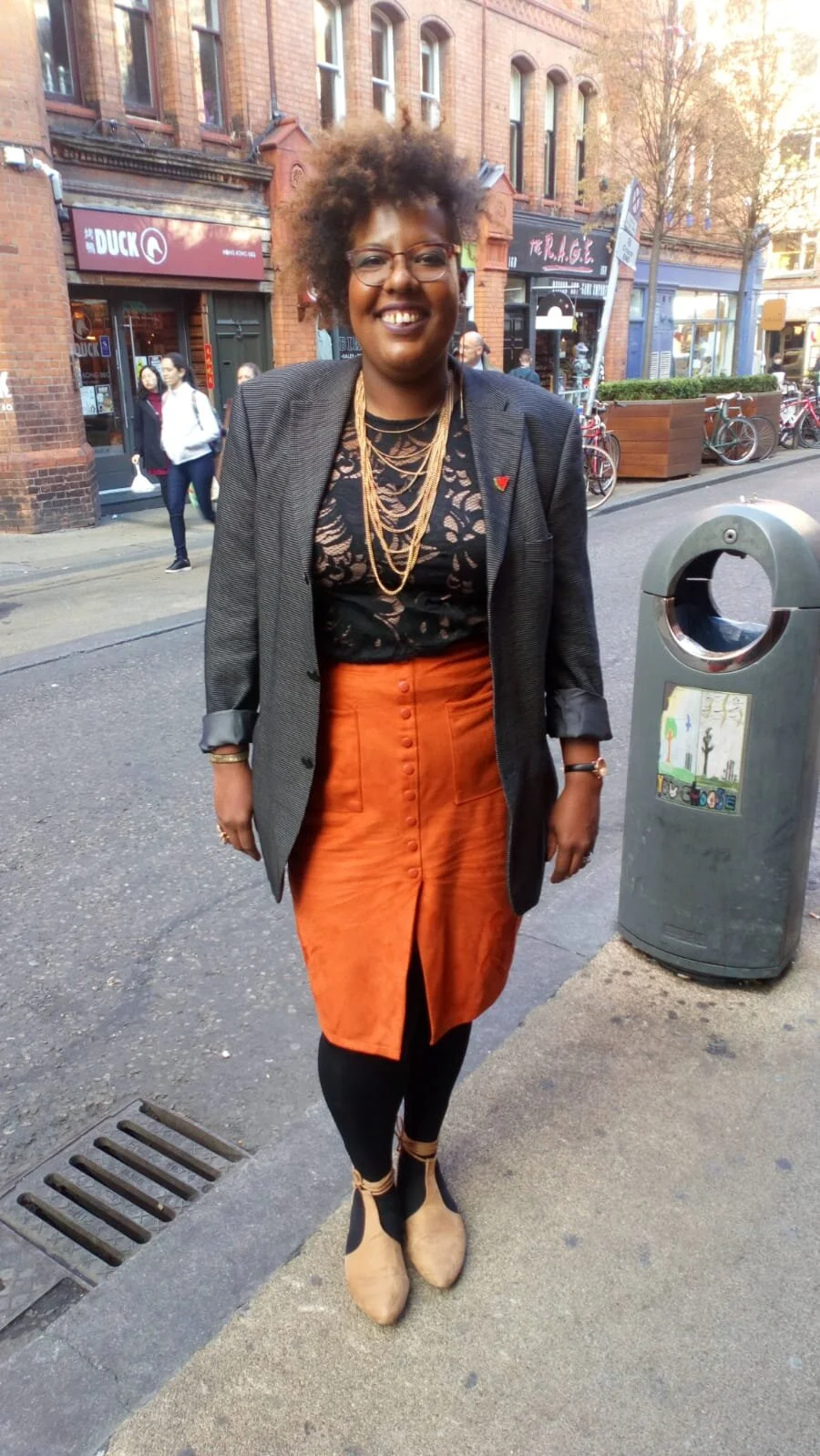Am I Black Enough? From a Black Latino-American Woman
After listening to Meghan and Harry’s interview with Oprah, I couldn’t stop thinking about Meghan identifying herself as a Black woman. I highlight this because, in my ignorance of what I know about The Crown, I would never have imagined at first sight that Megan could be considered a Black woman. However, having watched the whole interview, so many questions and the thirst for further investigation came to my mind. This isn’t related to the fact that I am doubting her statement, it is more about the window I believe her words open to our society. Within my Black and brown community, we don’t talk so much about how Black or not someone is. I don’t even feel right talking about it. But at the same time, I notice that there is a lack of conversations about the reality of Black people's experiences in modern society. It feels that we tend to go viral with the information once something bad happens to Black people. So, in the meanwhile, I believe silence is our worst enemy.
When the Black Lives Matter movement started resonating again, after George Floyd’s assassination, it was the first time that I could feel my Blackness raw and alive. I remember feeling the need to wait a couple of days to get mentally prepared before I could watch the video of George being killed by US police. I knew it was going to be incredibly shocking for me to watch. I also remember my friends asking me if I was going to say anything about it, or if I had at least watched the video. I chose not to answer my phone for a while. I couldn’t help feeling so sad, anxious and devastated after watching the video. I have to say that what helped me to get through was to start going to the protests in Dublin and expressing how I felt. The BLM movement was a big revelation for me.
I understood and identified myself with the Black people movement. I felt I finally belonged somewhere. Then I remember reading and investigating so much about it. At the same time, I was constantly sharing the information I found about Black people's rights on social media. Soon after, a couple of Latino American friends came to me and asked “Why are you so into this movement? I don’t think you are too Black”. It didn’t offend me at all. For Black people from Latino America, racism is treated and presented in different ways when compared to the USA or EU, for example. I believe the Black community around the world is often associated so strongly with African Americans and African American culture. And yes that could be the case sometimes, but Black people's ethnicity will depend on so many other factors, further than geographic location.
Initially, that question got me thinking so much but I let it pass at the time. After Meghan’s interview, the question came to mind again. Since then, I have been reading books and analyzing my thoughts and have come to the conclusion that being Black and considering yourself a Black or brown person, are not two separate concepts. Obviously, I am considered Black by the colour of my skin. You will definitely notice it when you see me, and of course I cannot do anything to hide it. But what happens when it comes to people like Meghan? People who identify themselves as Black? For me, at first, she looked like a white woman with a Latin influence. When you start to look a bit deeper into her background, you will of course begin to understand. This situation is more complex than what we first see. Being Black is determined by many other factors, not just the color of your skin, such as social environment, family lineage, DNA, social behaviors, physical features, sense of identity, and other personal details related to the historical background of a given person. And I finally understood that a combination of all these scenarios is what makes an individual identify themselves as being part of a specific ethnicity, in this case, Black or brown people.
I don’t think everyone has what it takes to say they are Black. Being black or brown has its own ownership by itself, and is not something to take for granted. Whether we like it or not, we Black people carry on the weight in our souls of slavery’s history, which was one of the biggest tragedies in human history, and it is now a part of our identity. In saying this, it is also important to mention that we as Black people should recognize and understand each other, especially to that other part of the community that does not look exactly the same as us or do not have the same skin colour that is expected when someone says “I am Black”.
We need to be inclusive and accept everyone across the diaspora, as we expect to be included and accepted in this society. Black people should be an example of inclusion in the world. We must forgive the past and make a better tomorrow for future generations. Being black is already a compounded topic, which we need to make easy and accessible for everyone. We all have the right to talk about it openly and ask as many questions as we need to understand what is going on in the black community around the world. Sometimes I get afraid to ask Black people questions about our origins or culture because it is assumed that because I am Black I need to know it all. Unfortunately not all information about Black people is on the books or the TV, sometimes you need to connect with your own kind in order to understand who you are or from where you came from. I believe that is how we could make a change and I want to believe that is how we learned. I invite you all cordially to enjoy our Negritud (as we say in Spanish) or our Blackness (as we also say in English). Let’s open our arms to hug every fellow Black human that feels apart or misunderstood within this society. I believe we win more by loving than hating.
Maholin Navarro
My name is Maholin Navarro. I am a Journalist and a Writer from Venezuela, currently based in Ireland since 8 years ago. I am passionate about writing and researching topics related to Black Women, especially everything linked to Black People from Latin America. I am a social activist interested in equality, LGBTQ+, racism, and xenophobia. I am constantly expressing my point of view through my writing, which is generally about social topics that are not so comfortable to talk about on a daily basis. My principal mission as a writer is to create that question mark about topics that people normally think they have clear and understood. I want people to recognize that not everything is Black and white but instead there's a lot of nuances. I have a previous writing background in Spanish language, writing theatre plays, and press including: TV, newspapers, social media, and magazines. In 2020 Rowana Abbensetts launched me as a writer and in 2021 as Guest Editor in English for Spoken Black Girl New York, which has been a very enriching and powerful experience.
Social Media @mahohoji
Email: maholinnavarro1@gmail.com


